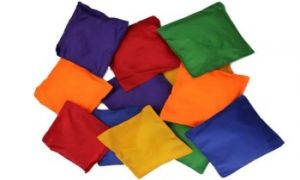

The transition from preschool to kindergarten isn’t just academic—it’s deeply social. As children move from parallel play to collaborative learning, they begin to form friendships, navigate conflict, and express their unique identities. These social and personal skills are the bedrock of emotional wellbeing and school readiness.
The following Biting Policy Example tailored for early childhood education and care (ECEC) services in Australia, drawing on best practice from ACECQA, Child Australia, and service-level procedures.
In early childhood education, the quality of a play space isn’t defined by how polished it looks—it’s defined by how deeply it invites children to imagine, explore, and belong. Research consistently shows that the most powerful play environments are those that center children’s agency, emotional safety, and social connection. Here are five foundational features that elevate play from passive activity to transformative experiences.
In a busy early learning room, nestled between a soft rug and a basket of sensory tools, something quietly revolutionary was unfolding. It wasn’t a new curriculum or a flashy resource—it was a space. A space designed not for punishment, but for peace. Not for isolation, but for connection. It was the Calm Corner, and it changed everything.
In early childhood education, our relationships with families are foundational but they’re not always easy to navigate. When a child’s behaviour begins to impact the safety or wellbeing of others, educators often find themselves caught between professional responsibility and fear of offending parents. Over time, many have grown hesitant to speak up, even as biting, pushing, and dysregulation become more frequent in toddler rooms.
Below are practical, emotionally intelligent ways to initiate these conversations with families—rooted in respect, partnership, and a shared commitment to every child’s wellbeing.
In early childhood education, our relationships with families are foundational—but they’re not always easy to navigate. When a child’s behaviour begins to impact the safety or wellbeing of others, educators often find themselves caught between professional responsibility and fear of offending parents. Over time, many have grown hesitant to speak up, even as biting, pushing, and dysregulation become more frequent in toddler rooms.
Below are practical, emotionally intelligent ways to initiate these conversations with families—rooted in respect, partnership, and a shared commitment to every child’s wellbeing.
Over the past decade, many educators have observed a troubling trend: biting, pushing, and other aggressive behaviours among toddlers are increasingly normalized as developmental inevitabilities. While it’s true that young children often lack the verbal tools to express frustration or overwhelm, the sector’s growing tolerance for these behaviours—without deeper investigation or family collaboration—raises serious concerns about safety, equity, and emotional wellbeing.
In early childhood settings, educators often face a subtle but powerful choice: should learning focus on the process or the product? While both approaches have their place, understanding the distinction can transform how we nurture creativity, independence, and critical thinking in young children.
A: It depends on children's engagement and developmental needs. Many educators recommend keeping setups for 2–4 weeks, or even up to 6 weeks, especially if children are still exploring and learning from them. The key is to observe whether the setup continues to spark interest and growth.
As early childhood education centres periodically review their guiding philosophies, many educators are seeking innovative ways to make the process more inclusive, reflective, and engaging for staff, families, and the broader community.
 As an Educator in Australia, your pay rate falls under the Children’s Services Award 2010. This award states the minimum amount that an employer can… Read More
As an Educator in Australia, your pay rate falls under the Children’s Services Award 2010. This award states the minimum amount that an employer can… Read More
 When working as a qualified Early Childhood Teacher (with a university degree) within a service, your rate of pay will come from the Educational Services… Read More
When working as a qualified Early Childhood Teacher (with a university degree) within a service, your rate of pay will come from the Educational Services… Read More
 When working as a Diploma Qualified Educator your pay rate is from the Children's Services Award 2010. This Award states your minimum rate of pay… Read More
When working as a Diploma Qualified Educator your pay rate is from the Children's Services Award 2010. This Award states your minimum rate of pay… Read More
 When working as a Cert 3 Qualified Educator, your pay rate is from the Children's Services Award 2010. This Award states your minimum rate of… Read More
When working as a Cert 3 Qualified Educator, your pay rate is from the Children's Services Award 2010. This Award states your minimum rate of… Read More
 Educational Leaders play a crucial role in their early childhood service by ensuring that the educational program aligns with best practices and supports the holistic… Read More
Educational Leaders play a crucial role in their early childhood service by ensuring that the educational program aligns with best practices and supports the holistic… Read More
 In early childhood education and care, ratios are more than a technicality—they are a frontline safeguard. Every child deserves responsive supervision, emotional connection, and developmental… Read More
In early childhood education and care, ratios are more than a technicality—they are a frontline safeguard. Every child deserves responsive supervision, emotional connection, and developmental… Read More
 With the new national child safety reforms kicking in on 1 September 2025, early childhood services like yours have a real opportunity to lead the… Read More
With the new national child safety reforms kicking in on 1 September 2025, early childhood services like yours have a real opportunity to lead the… Read More
 Here’s a comprehensive Mobile Phone and Smart Watch Policy tailored for early childhood education and care (ECEC) services in Australia, aligned with the latest 2025… Read More
Here’s a comprehensive Mobile Phone and Smart Watch Policy tailored for early childhood education and care (ECEC) services in Australia, aligned with the latest 2025… Read More
 The Sea of Fish Challenge is a national initiative that invites children, educators, families, and communities to create and display fish artworks as a symbol… Read More
The Sea of Fish Challenge is a national initiative that invites children, educators, families, and communities to create and display fish artworks as a symbol… Read More
 Cold weather play is incredibly beneficial for early childhood development! It helps children build resilience, strengthen their immune systems, and develop essential motor skills. Here’s… Read More
Cold weather play is incredibly beneficial for early childhood development! It helps children build resilience, strengthen their immune systems, and develop essential motor skills. Here’s… Read More

Bean bags are a great way for children to develop skills across all developmental areas...
See more...
Rough-and-tumble play—often called play fighting—is a form of physical, high-energy play that helps children develop...
See more...
Here’s an educator-friendly EYLF V2.0 Reference Sheet designed for quick use in planning, documentation, and reflection...
See more...© 2009-2025 Aussie Childcare Network Pty Ltd. All Rights Reserved.

